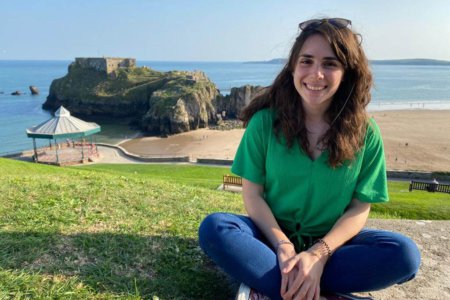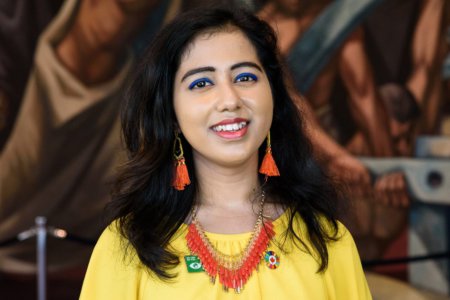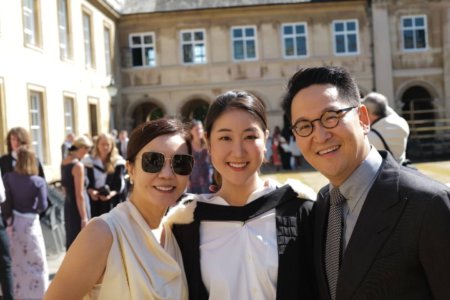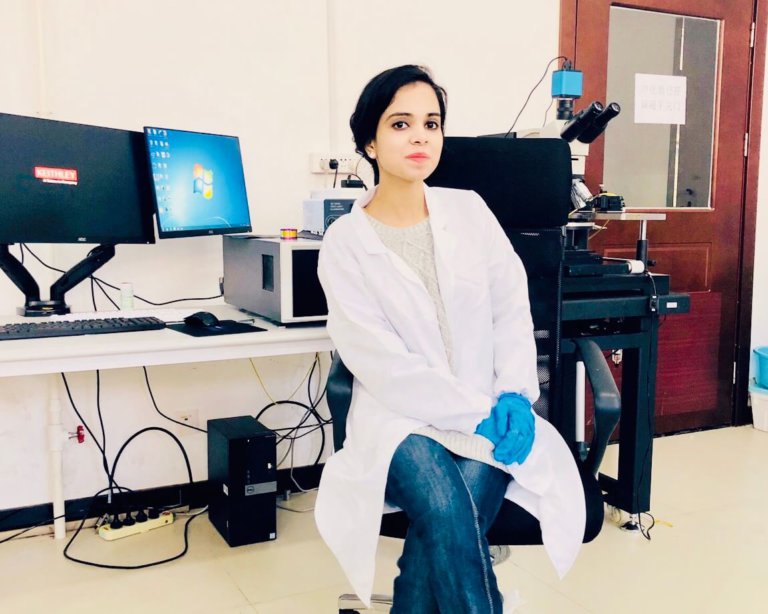
Hira Khalid is a woman in a man’s world. Less than a third (29.3%) of those employed in scientific research and development across the world in 2016 are women. Khalid, a Pakistani PhD candidate specialising in Molecular Electronics at Tianjin University, is proud to be part of this group. “Not many women are willing to commit so many years of her life. It requires commitment, stamina and discipline,” she says.
Khalid’s research focuses on molecular electronics, fabrication of molecular junctions, basic principle of molecular conduction and functional molecular electronic devices. Her PhD programme consists of chemistry specialising in the field of molecular electronics. Find out what she has to say about being a PhD student abroad in a male-dominated workplace:
Why did you choose to be a PhD student at Tianjin University?
China is super active, I was fascinated to proceed and research in this field of science which looked very advanced and promising to me. I chose Tianjin University because they have a reputation for world-class research and is internationally recognised.
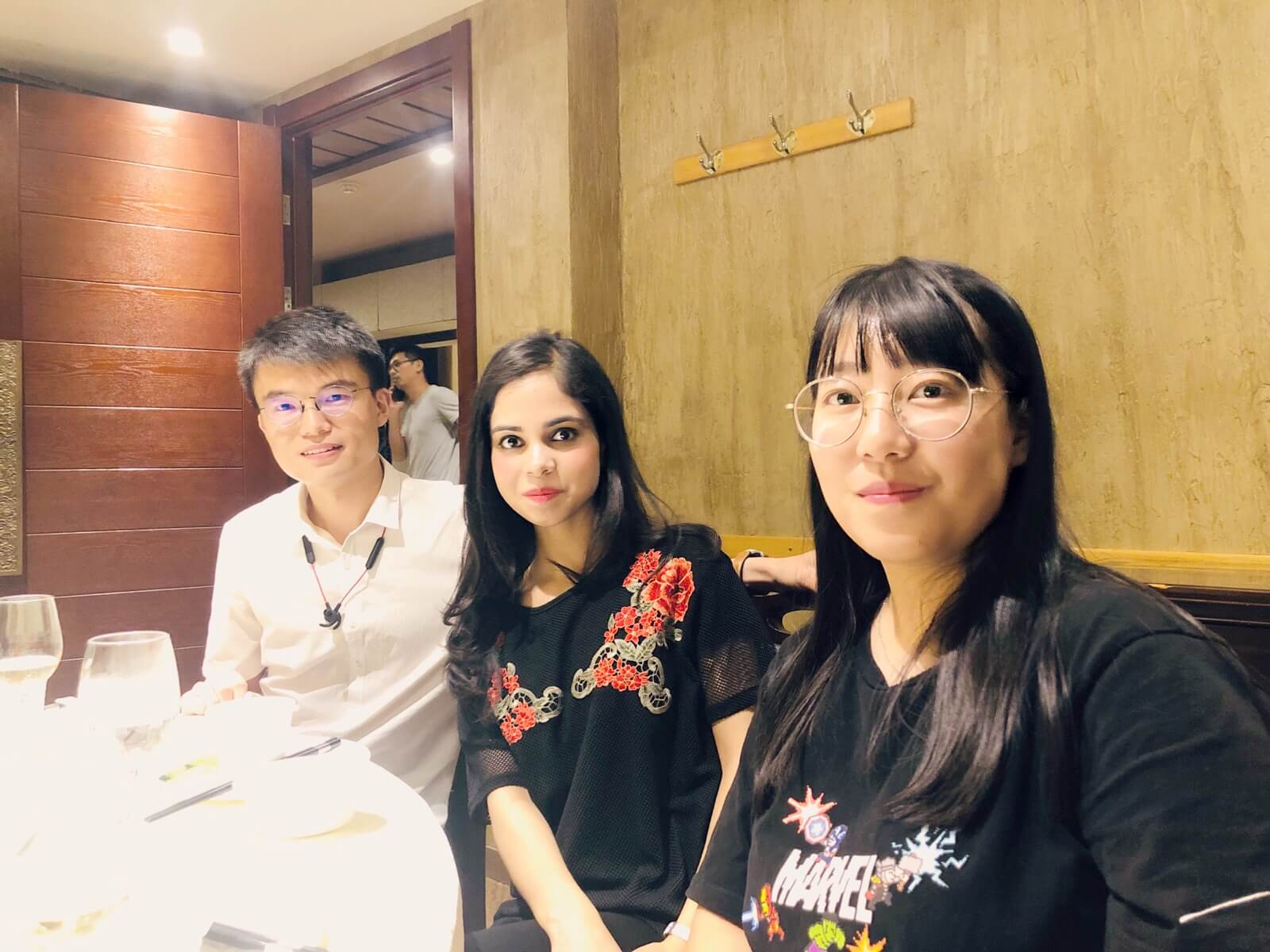
Khalid (middle) pictured here with colleagues, is proud to be part of a group of researchers in her specific field of study. Source: Hira Khalid
I am impressed by the vast amount of quality research conducted at Tianjin University, if one wants to be a researcher, then this is the place. I was also lucky enough to find great mentors, the teachers are extremely supportive and helpful.
I like the independence I have been granted to mold my studies in accordance with my interests. I owe a lot to Professor Yu Xi, Professor Hu Wenping, and Professor ShanShan, among several others, who ignited my interest in the subject I’m studying. They are the most influential mentors in my career and a guiding force that continues to ignite my passion.
What is it like being a woman in the science and research industry?
As a female scientist, I feel a proud sense of achievement and accomplishment in how my career is progressing positively. Women are pursuing science careers at a never-before-seen rate, and this rising inclusion of female voices is truly inspiring.
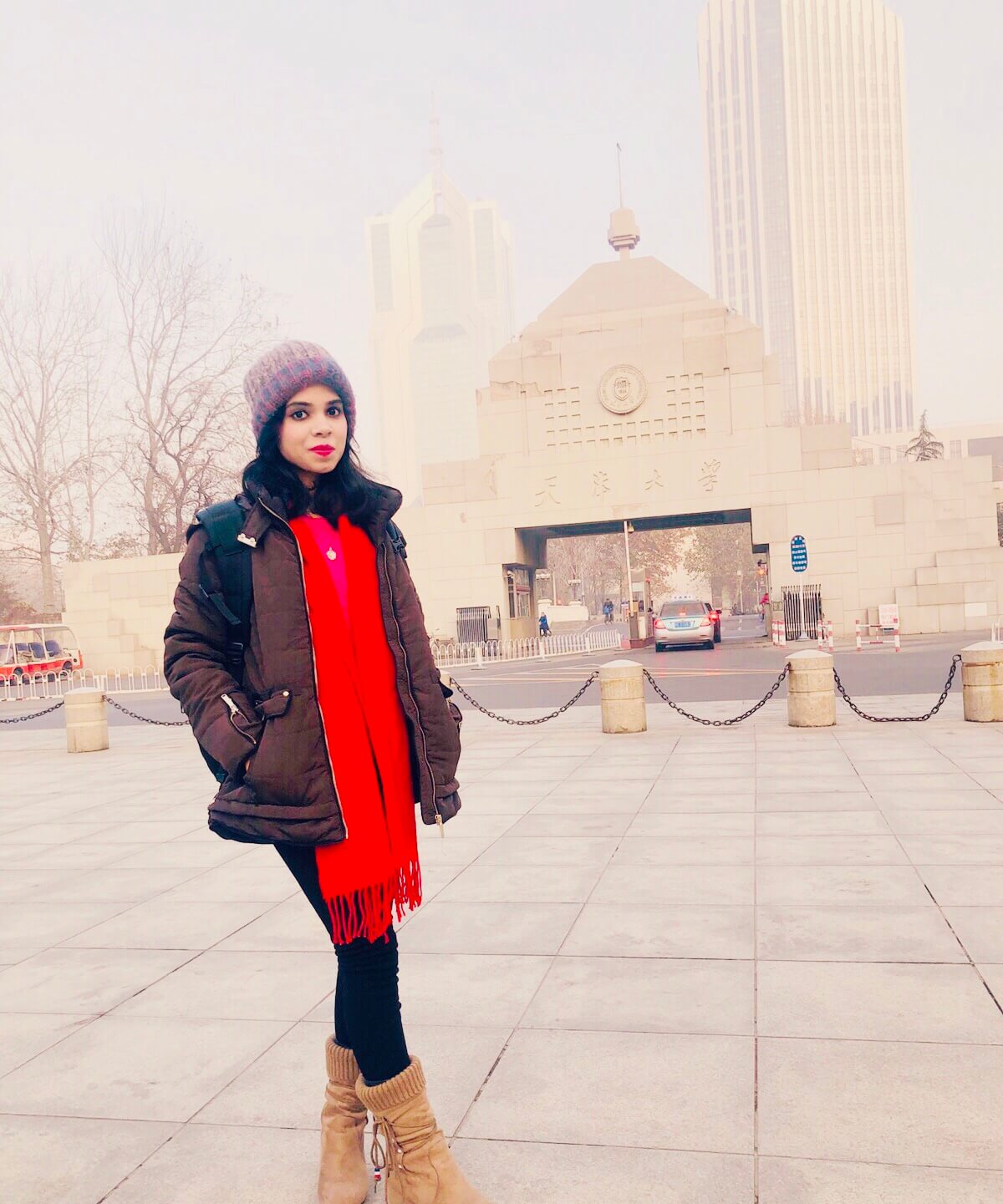
“Not many women are willing to commit so many years of her life. It requires commitment, stamina and discipline,” Khalid says. Source: Hira Khalid
Successful women are often driven by motivators such as self-esteem, self-efficacy and work adaptability. Mentoring is also a significant role in female scientists’ careers, and I’m lucky enough to have one as my PhD advisor who has taught me to think outside of the box.
What challenges do you face as a woman in science and how do you overcome them?
Being a PhD student and a woman in science is creative and innovative while also technical and complex. Not many women are willing to commit so many years of her life. It requires commitment, stamina and discipline.
I gave up all other extracurricular activities just to enhance my output in my lab. I have worked every day to change my habits so I never disappoint my professors with my attitude. Limiting distractions is also key to managing stress, and it’s good to remember that change begins at the end of your comfort zone.
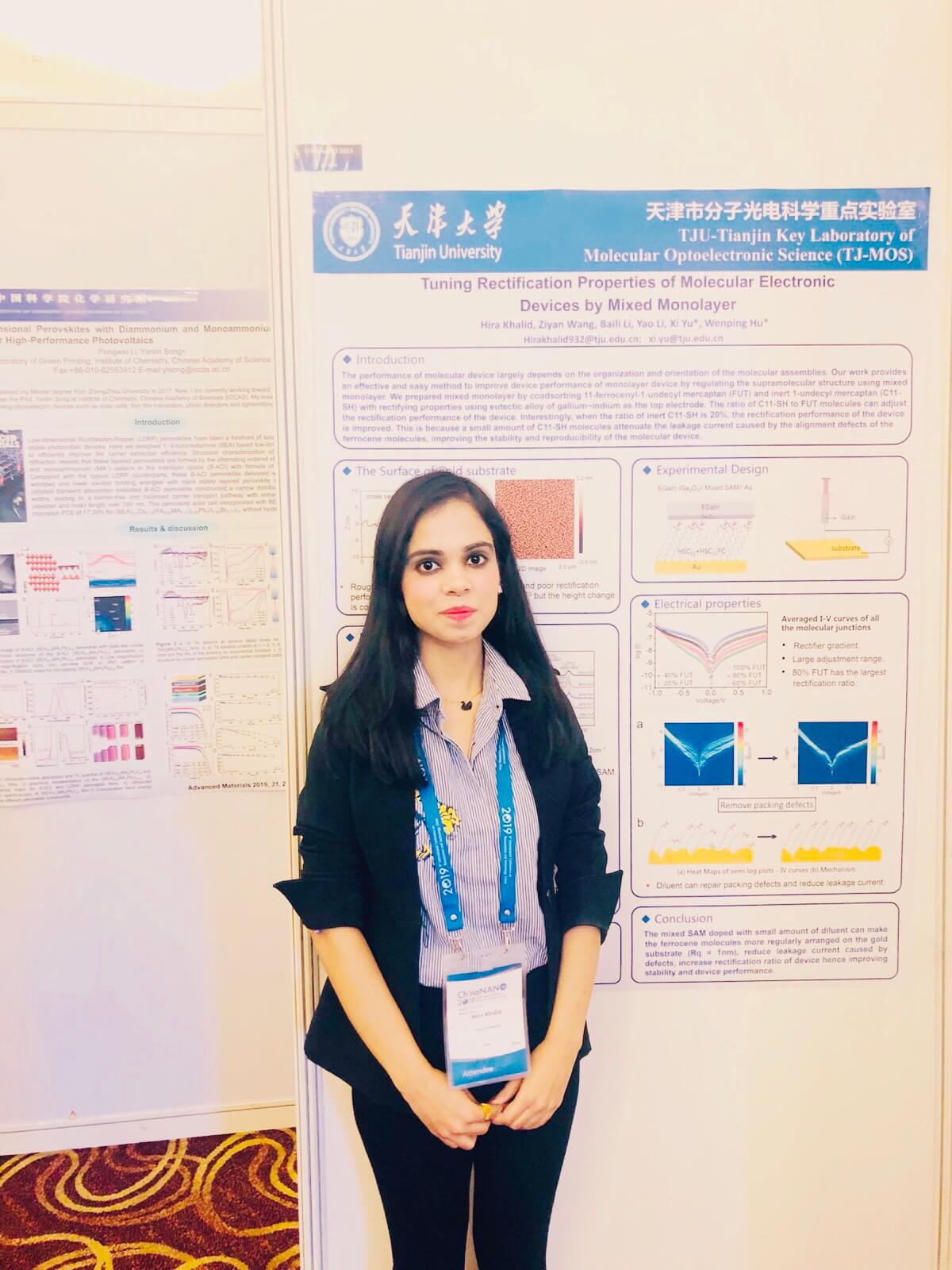
Khalid’s research focuses on molecular electronics, fabrication of molecular junctions, basic principle of molecular conduction and functional molecular electronic devices. Source: Hira Khalid
Another key thing scientists need to understand is the importance of patience. They will constantly repeat experiments to obtain the desired results. I believe women in science need high-self esteem, perseverance, and faith. I fully appreciate the toughness and bravery that it took me to become a woman in science.
What are the practical learning elements in your course?
We do very fundamental kinds of research, specialising in molecular electronics that studies electronic devices with molecules as building units. We explore the basics of physical and chemical theory of charge transport through molecules on a mesoscopic scale. Our ultimate objective is to build practical devices based on molecules.
What are your fondest memories?
My best memories come from the days surrounding the Foreign Reception when I first began my PhD studies. The fondest memory so far was the day where I happened to be the first and only international student from my lab who presented research work to the big annual group meeting.
Secondly, I participated in a poster presentation at China Nano International Conference on Nanoscience and Technology 2019, held in Beijing. I had the opportunity to meet researchers from all around the world and visit beautiful places there with my Chinese friends.
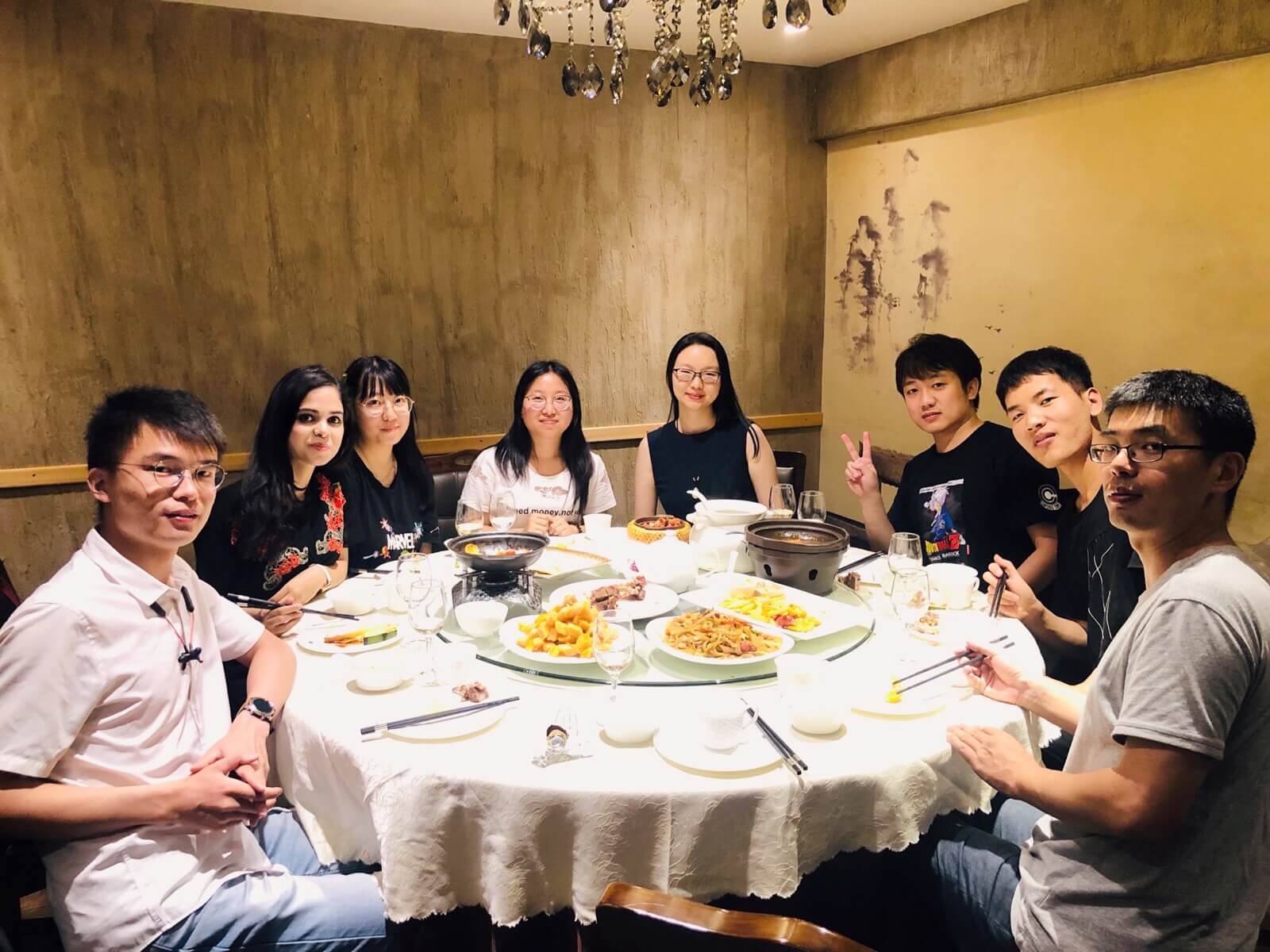
Her PhD programme consists of combining chemical physics and physical chemistry with vast applications in the field of quantum chemistry, synthetic chemistry and so on. Source: Hira Khalid
I met the pioneers in my field of research and introduced them to my research work. These events and activities helped me socialise and develop.
What are your academic goals as a PhD student?
I am still at a very initial stage of my professional career, so there is a long way to go to prosper in the field of molecular electronics. I believe that in any area of study and research, the primary objective is to contribute to what is understood about the phenomenon by applying scientific methods.
I get hands-on experience in research by assisting in testing advanced instruments, various tools and experimentation. I also achieved a better understanding of the scientific method, learned how to create research questions, formed the basics from pure theoretical study and tested them practically. Additionally, I learned to think positive, stay focused, be resilient and manage my time appropriately.
Do you think there is more to be done to bridge the gender gap in the science industry?
Science is a game for everybody. It should be made equal to both genders. Much more could be done if more enthusiastic women choose careers in science. I believe a few years is not sufficient enough to make you a good researcher. What makes you excel in this field is a lifetime of achievement along with many years of hard work and dedication. I hope for a world where the issue of women in leadership roles in science is no longer a topic that needs to be debated. With all the recent efforts, it’s shaping to look that way!
What do you plan to do after graduating?
It’s difficult to predict the future, but I foresee immense potential at such interfaces that address the fundamental questions in molecular electronic devices unravelling the charge transport properties. I definitely plan to progress further in this field and my future direction would more or less remain the same.
I don’t have concrete plans yet, but I have been enjoying my time in Tianjin University. Here there are a lot of opportunities. There’s a really good chance I will stay here, as this experience has been incredible in terms of academia and my social life.
I’ve met people who have different interests and aspirations from all over the world and this has helped me to become motivated and excited about the future in research.
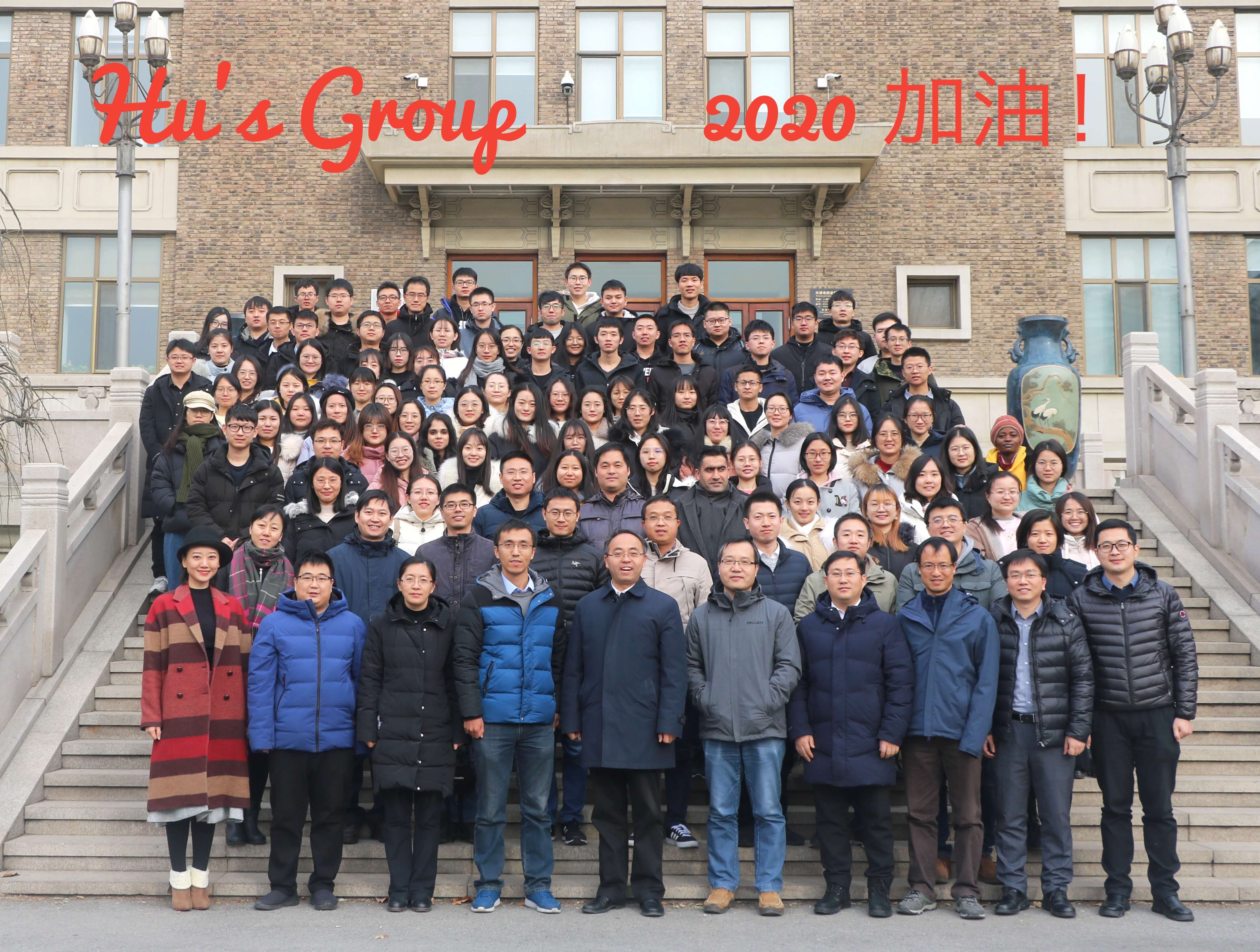
“As a female scientist, I feel a proud sense of achievement and accomplishment in how my career is progressing positively,” Khalid says. Source: Hira Khalid
What advice do you have for international students looking to study abroad in China?
I would highly encourage prospective students to opt for Tianjin University for their future studies as it would provide an upward trajectory for their careers. For students, China is home to excellent unis and advanced research facilities.
Unis here are well-known for their scientific, technical and mathematical excellence on a global scale. In China, the government has put in a lot of money into its education system and in recent years have been offering several excellent scholarships to support and fund the research of talented foreigners.
I would like to recommend prospective students to search for various available scholarship opportunities and carefully choose the programme they want to enrol in. You should also draft your application carefully and keep deadlines in mind.
Studying in China is a wonderful opportunity, and the possibility to study here should be seriously considered by international students.
Name your top three favourite places in China.
Firstly, the Great Wall of China, then the Forbidden City and the Imperial Palace in Beijing, and lastly, the ferris wheel Eye of Tianjin.








